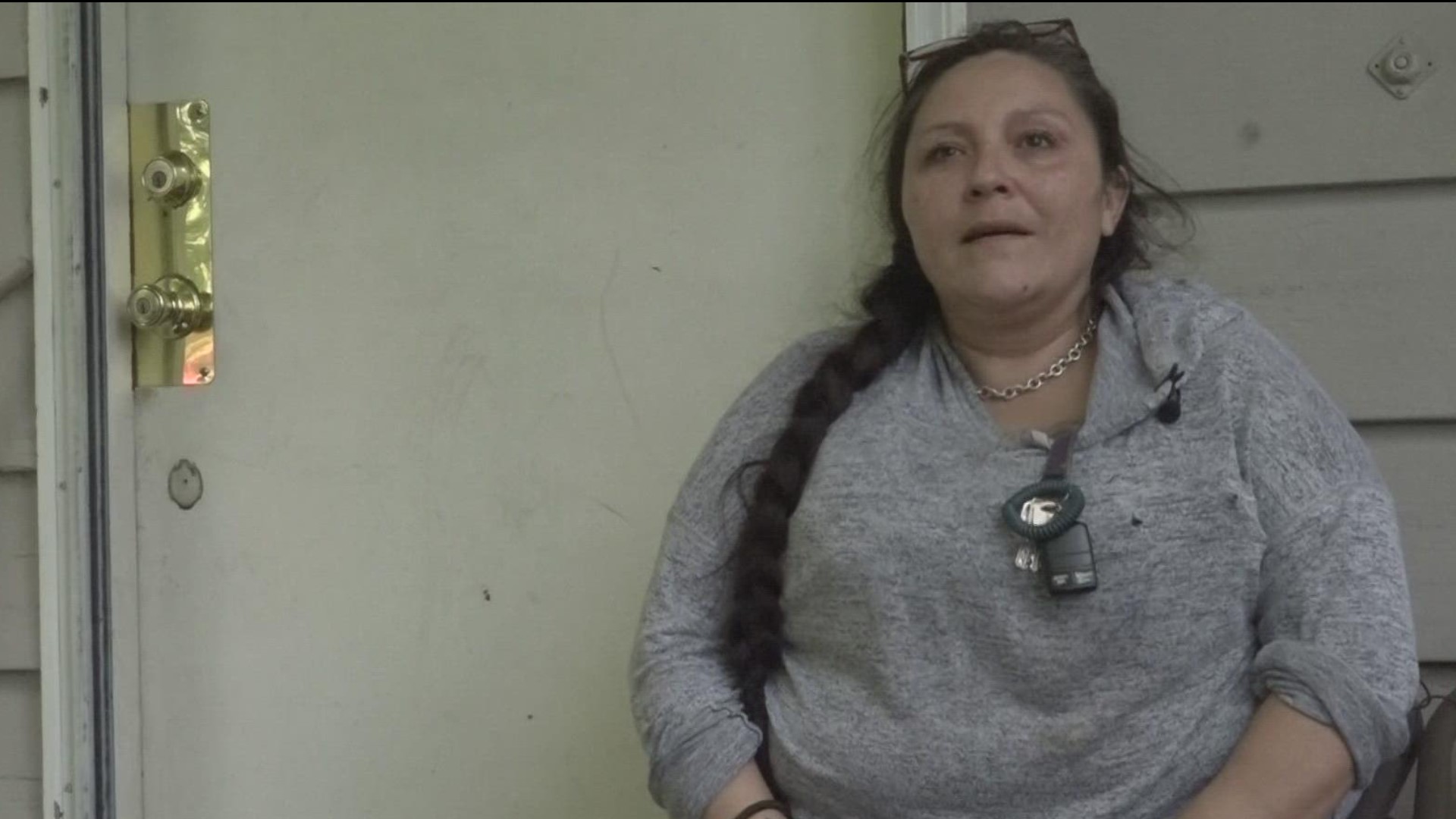PORTLAND, Ore — A real estate sign swung in the wind in the front lawn of a single-family home in Southeast Portland.
Muffled sounds from a TV could be heard outside the front door.
It was late Tuesday morning and Lisa Antich sat on a black leather sofa with her husband and elderly mother.
“We have nowhere to go,” she said as she nervously patted her knee.
“My biggest fear is we’re going to end up sleeping in my car, and how am I going to tell my child that?”
Antich and her family have lived in their home for about 10 years. They just found out their landlord sold it to an out-of-state buyer. She described getting the news as “heart wrenching.”
Her family lives off $1,000 per month between money she gets for her disability and her mother’s retirement.
“It’s hard. I’m trying to figure out how to do it and everything’s a waiting list.”
They don’t have time to wait. They were supposed to have moved out last month.
“We’re out of days, we’re on borrowed time.”
Antich said she can’t find an apartment in their budget and has had no luck getting a housing voucher.
“A lot of them wouldn’t help us until we’re in the car and then a lot of them won’t help us because I’m not addicted to drugs and I don’t drink alcohol.”
As for living on the streets, she’s afraid of what that would be like.
“I am terrified. I’m terrified. My uncle was just killed on 136th walking down the street.”
Their plan now is to sleep in the car since a motel room is too expensive.
“First of all, that should never happen. Families and their kids should always have alternatives and affordable rents, and no family should be forced to live in homelessness with their child,” said Shannon Callahan, the director of Portland’s Housing Bureau. “No kid should be living in a car or on the street.”
In Northeast Salem is another side to this crisis. Kathleen Quinn is disabled and on a fixed income of $850 per month.
“I’m trapped. I can’t afford to move and then I don’t have the credit to move.”
She’s been living in a one-bedroom apartment for about six years and has faced numerous issues with the living conditions.
“I’ve been telling them how hard it is for me to breathe in here,” she said as she pointed to her mold-covered walls.
“My carpet, my furniture, my Birkenstocks, everything, everything,” she said as she walked to the overflowing septic tank outside her bedroom window.
She wore a bright pink polka-dot dress and purple eyeshadow – a look she said makes her feel better when living in these conditions.
“Trying to live in this…It’s been horrifying,” she said.
Moving boxes fill the inside of her apartment. She is prepared to move, but has no where to go.
She pointed out the water heater in the bathroom that flooded and a new window she just got in her bedroom due to the mold.
“It’s inhumane to expect people to live in such high levels of mold and ignore them,” she said.
But just like Antich, she’s called people for help, but gets nowhere.
"We don't know where we're going to go, we don't know what we're going to do, we don't know where we're going to be," said Antich.
The director of Portland Housing said families in these positions should contact the Joint Office of Homeless Services or the Portland Housing Bureau, since there are transitional housing options to keep children and families off the streets.
KGW reached out to Quinn’s property manager, Cara Tapken with Crown Property Management, about her living conditions. Tapken responded with the following statement:
“We take these calls/reports, along with many other maintenance requests, very seriously as we understand the importance of addressing these items as quickly as possible. As a general standard of practice, once a tenant or a tenant representative makes us aware of the type of matters you’ve mentioned, a number of different responses are set in motion, including, without limitation, assessment by a team member and/or third-party vendor, to ensure the matters are addressed according to the needs in the unit.”

